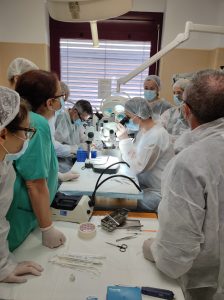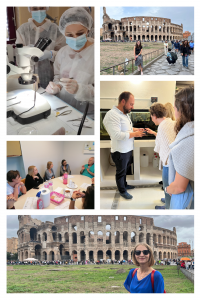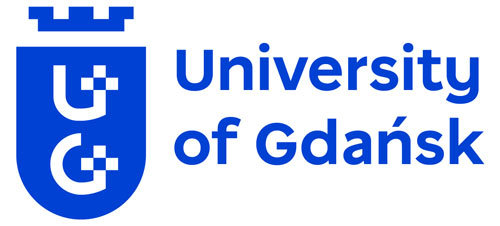
Between October 16 and 26, Alicja Dziadosz and Katarzyna Dziubek participated in a two-week course in animal studies, specifically focusing on patient-derived xenografting in mice. The training was organised by Dr Marina Potesta and Dr Carla Montesano as part of CANVAS project and took place in Italy at The University of Rome Tor Vergata, which is our strategic partner in the CANVAS project.
The training included both theoretical and practical aspects of work with animals. Here are the key points of the stay:
“Having no prior experience in animal work, we first learned basic animal handling and injection methods. Later, we were instructed on how to properly perform anaesthesia and approach the animal postoperative care. Finally, we proceeded to more advanced training on tumour transplantation in mice using various methods, depending on the study design and type of tumour investigated. Interestingly, in case of NSCLC tissue, the implantation success may vary between 23% and 90% depending on the method chosen for transplantation, making it a key factor for experimental outcomes,” said Katarzyna.
“Murine models are extremely valuable for the advancement of cancer studies and allow for much better similarity to the human body conditions than any other in vitro model. However, each animal study should be performed with great care to minimize animal discomfort. Moreover, having no previous experience with animal work, I realized that working with a living, moving organism is a very difficult job, also in emotional terms. This course and the people working there made me realize how important it is to put the welfare of animals first” – added Alicja.

In addition to the practical training, we participated in a workshop focused on current research projects developed at The University of Rome Tor Vergata. That included the implementation of mice studies in regenerative medicine and the impact of chemical compound in our environment on cancer development.
Interestingly, we also had a chance to meet with researchers working on the development of a hormonal vaccine to regulate the population of wild boar in Italy as a safe alternative to currently available methods.
During our free time, we explored the beautiful sites of ancient Rome, drank a lot of coffee, enjoyed pizza and pasta and of course indulged in gelato.
Alicja Dziadosz & Katarzyna Dziubek



